Deck 5: Integration and Its Applications
Question
Question
Question
Question
Question
Question
Question
Question
Question
Question
Question
Question
Question
Question
Question
Question
Question
Question
Question
Question
Question
Question
Question
Question
Question
Question
Question
Question
Question
Question
Question
Question
Question
Question
Question
Question
Question
Question
Question
Question
Question
Question
Question
Question
Question
Question
Question
Question
Question
Question
Question
Question
Question
Question
Question
Question
Question
Question
Question
Question
Question
Question
Question
Question
Question
Question
Question
Question
Question
Question
Question
Question
Question
Question
Question
Question
Question
Question
Question
Question

Unlock Deck
Sign up to unlock the cards in this deck!
Unlock Deck
Unlock Deck
1/88
Play
Full screen (f)
Deck 5: Integration and Its Applications
1
Find the cost function for the marginal cost  and fixed cost of $2,800 (for x = 0).
and fixed cost of $2,800 (for x = 0).
A)
B)
C)
D)
E)
 and fixed cost of $2,800 (for x = 0).
and fixed cost of $2,800 (for x = 0). A)

B)

C)

D)

E)


2
Find the particular solution that satisfies the differential equation  and initial condition
and initial condition 
A) 
B)
C)
D)
E)
 and initial condition
and initial condition 
A)

B)

C)

D)

E)


3
Evaluate the integral 
A)
B)
C)

D)

E)


A)

B)

C)


D)


E)




4
A ball is thrown vertically upwards from a height of 6 ft with an initial velocity of 40 ft per second.
How high will the ball go?
A) 29.03 ft
B) 29.34 ft
C) 30.89 ft
D) 25.02 ft
E) 32.12 ft
How high will the ball go?
A) 29.03 ft
B) 29.34 ft
C) 30.89 ft
D) 25.02 ft
E) 32.12 ft

Unlock Deck
Unlock for access to all 88 flashcards in this deck.
Unlock Deck
k this deck
5
Evaluate the integral 
A)
B)
C)
D)
E)

A)

B)

C)

D)

E)


Unlock Deck
Unlock for access to all 88 flashcards in this deck.
Unlock Deck
k this deck
6
Find the indefinite integral  and check your result by differentiation.
and check your result by differentiation.
A)
B)
C)
D)
E)
 and check your result by differentiation.
and check your result by differentiation. A)

B)

C)

D)

E)


Unlock Deck
Unlock for access to all 88 flashcards in this deck.
Unlock Deck
k this deck
7
The graph of the derivative of a function is given below.Sketch the graphs of two functions that have the given derivative. 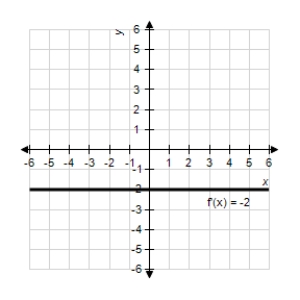
A) 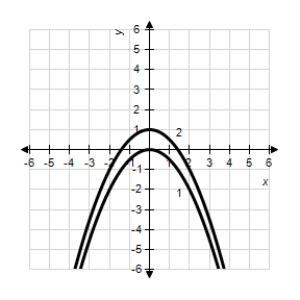
1:
2:
B) 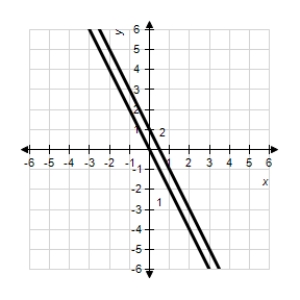
1:
2:
C) 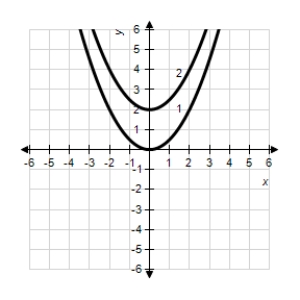 1:
1: 
2:
D) 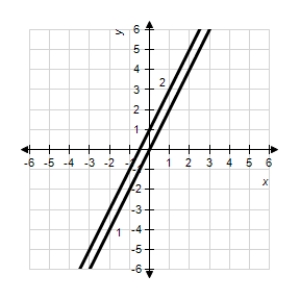 1:
1: 
2:
E) 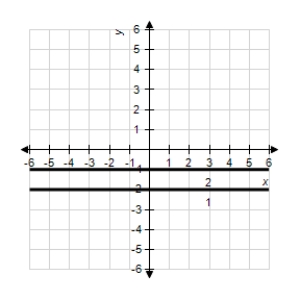
1:
2:

A)

1:

2:

B)

1:

2:

C)
 1:
1: 
2:

D)
 1:
1: 
2:

E)

1:

2:


Unlock Deck
Unlock for access to all 88 flashcards in this deck.
Unlock Deck
k this deck
8
Use algebra to rewrite the integrand; then integrate and simplify. 
A)
B)
C)
D)
E)

A)

B)

C)

D)

E)


Unlock Deck
Unlock for access to all 88 flashcards in this deck.
Unlock Deck
k this deck
9
Find the indefinite integral  and check your result by differentiation.
and check your result by differentiation.
A)
B)
C)
D)
E)
 and check your result by differentiation.
and check your result by differentiation. A)

B)

C)

D)

E)


Unlock Deck
Unlock for access to all 88 flashcards in this deck.
Unlock Deck
k this deck
10
The graph of the derivative of a function is given below.Sketch the graphs of two functions that have the given derivative. 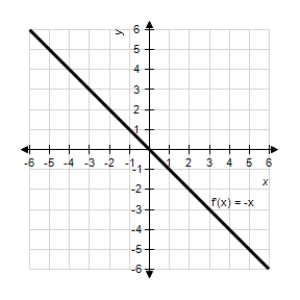
A) 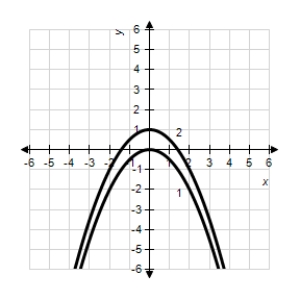
1:
2:
B) 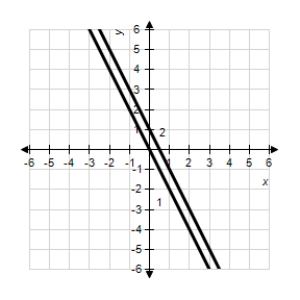
1:
2:
C) 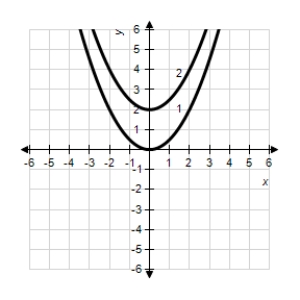 1:
1: 
2:
D) 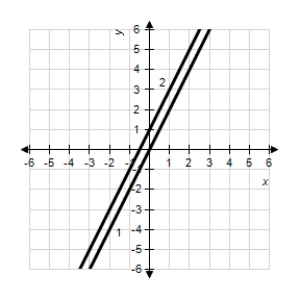 1:
1: 
2:
E) 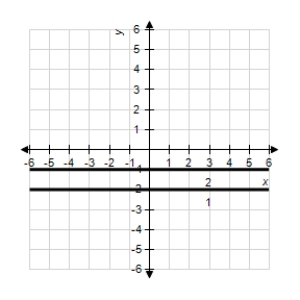
1:
2:

A)

1:

2:

B)

1:

2:

C)
 1:
1: 
2:

D)
 1:
1: 
2:

E)

1:

2:


Unlock Deck
Unlock for access to all 88 flashcards in this deck.
Unlock Deck
k this deck
11
Find the indefinite integral and check the result by differentiation. 
A)
B)
C)
D)
E)

A)

B)

C)

D)

E)


Unlock Deck
Unlock for access to all 88 flashcards in this deck.
Unlock Deck
k this deck
12
The graph of the derivative of a function is given below.Sketch the graphs of two functions that have the given derivative. 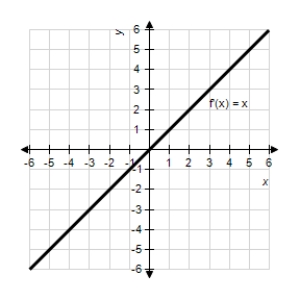
A) 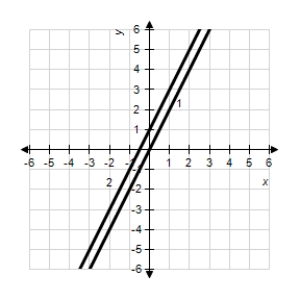
1:
2:
B) 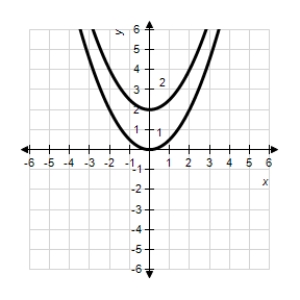
1:
2:
C) 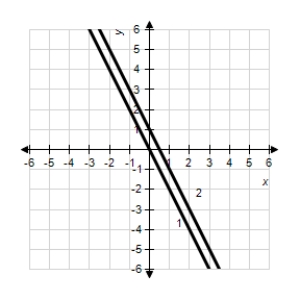 1:
1: 
2:
D) 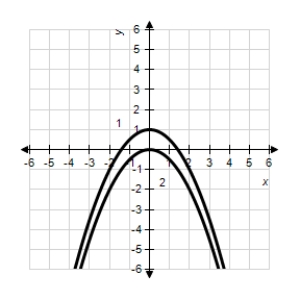 1:
1: 
2:
E) 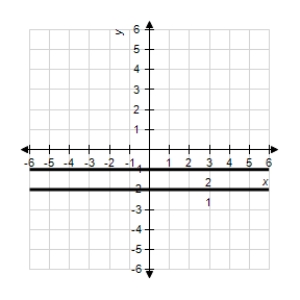
1:
2:

A)

1:

2:

B)

1:

2:

C)
 1:
1: 
2:

D)
 1:
1: 
2:

E)

1:

2:


Unlock Deck
Unlock for access to all 88 flashcards in this deck.
Unlock Deck
k this deck
13
An evergreen nursery sells a certain shrub after 8 years.The growth rate of the shrub is given by  ,where t is the time in years and h is the height in centimeters.The seedlings are 18 centimeters tall when planted (t = 0).How tall are the shrubs when they are sold?
,where t is the time in years and h is the height in centimeters.The seedlings are 18 centimeters tall when planted (t = 0).How tall are the shrubs when they are sold?
A) 72 centimeters
B) 67 centimeters
C) 78 centimeters
D) 162 centimeters
E) 274 centimeters
 ,where t is the time in years and h is the height in centimeters.The seedlings are 18 centimeters tall when planted (t = 0).How tall are the shrubs when they are sold?
,where t is the time in years and h is the height in centimeters.The seedlings are 18 centimeters tall when planted (t = 0).How tall are the shrubs when they are sold? A) 72 centimeters
B) 67 centimeters
C) 78 centimeters
D) 162 centimeters
E) 274 centimeters

Unlock Deck
Unlock for access to all 88 flashcards in this deck.
Unlock Deck
k this deck
14
Evaluate the integral 
A)
B)
C)
D)
E)

A)

B)

C)

D)

E)


Unlock Deck
Unlock for access to all 88 flashcards in this deck.
Unlock Deck
k this deck
15
Evaluate the integral 
A)
B)
C)
D)
E)

A)

B)

C)

D)

E)


Unlock Deck
Unlock for access to all 88 flashcards in this deck.
Unlock Deck
k this deck
16
Find the indefinite integral and check the result by differentiation. 
A)
B)
C)
D)
E) none of the above

A)

B)

C)

D)

E) none of the above

Unlock Deck
Unlock for access to all 88 flashcards in this deck.
Unlock Deck
k this deck
17
The graph of the derivative of a function is given below.Sketch the graphs of two functions that have the given derivative. 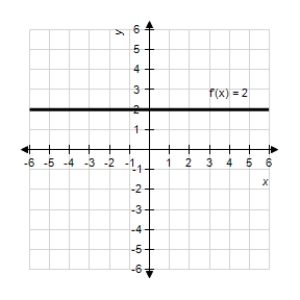
A) 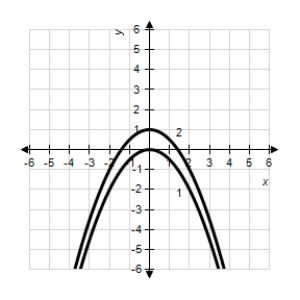
1:
2:
B) 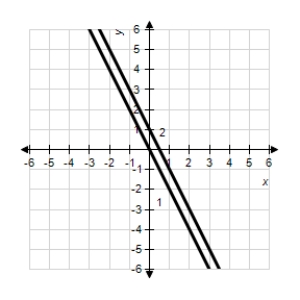
1:
2:
C) 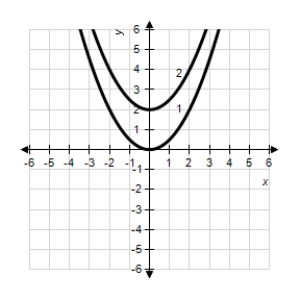 1:
1: 
2:
D) 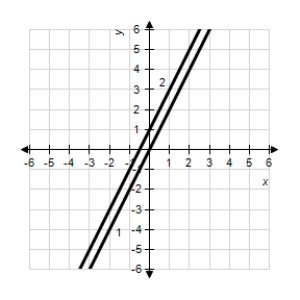 1:
1: 
2:
E) 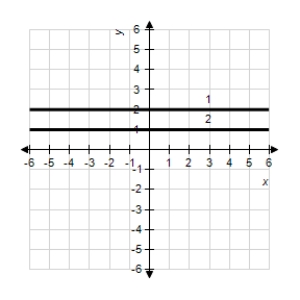
1:
2:

A)

1:

2:

B)

1:

2:

C)
 1:
1: 
2:

D)
 1:
1: 
2:

E)

1:

2:


Unlock Deck
Unlock for access to all 88 flashcards in this deck.
Unlock Deck
k this deck
18
Identify u and  for the integral
for the integral 
A) and
and 
B) and
and 
C) and
and 
D) and
and 
E) and
and 
 for the integral
for the integral 
A)
 and
and 
B)
 and
and 
C)
 and
and 
D)
 and
and 
E)
 and
and 

Unlock Deck
Unlock for access to all 88 flashcards in this deck.
Unlock Deck
k this deck
19
Find a function that satisfies the conditions  ,
,  ,
, 
A)
B)
C)
D)
E)
 ,
,  ,
, 
A)

B)

C)

D)

E)


Unlock Deck
Unlock for access to all 88 flashcards in this deck.
Unlock Deck
k this deck
20
Evaluate the integral 
A)
B)
C)
D)
E)

A)

B)

C)

D)

E)


Unlock Deck
Unlock for access to all 88 flashcards in this deck.
Unlock Deck
k this deck
21
Find the indefinite integral of the following function and check the result by differentiation. 
A)
B)
C)
D)
E) none of the above

A)

B)

C)

D)

E) none of the above

Unlock Deck
Unlock for access to all 88 flashcards in this deck.
Unlock Deck
k this deck
22
Evaluate the integral 
A)
B)
C)
D)
E)

A)

B)

C)

D)

E)


Unlock Deck
Unlock for access to all 88 flashcards in this deck.
Unlock Deck
k this deck
23
Use formal substitution to find the indefinite integral 
A)
B)
C)
D)
E)

A)

B)

C)

D)

E)


Unlock Deck
Unlock for access to all 88 flashcards in this deck.
Unlock Deck
k this deck
24
Find the supply function  that satisfies
that satisfies  and the initial condition
and the initial condition  when
when 
A)
B)
C)
D)
E)
 that satisfies
that satisfies  and the initial condition
and the initial condition  when
when 
A)

B)

C)

D)

E)


Unlock Deck
Unlock for access to all 88 flashcards in this deck.
Unlock Deck
k this deck
25
The marginal cost of a product is modeled by  ,when x = 8,C = 9.Find the cost function.
,when x = 8,C = 9.Find the cost function.
A)
B)
C)
D)
E)
 ,when x = 8,C = 9.Find the cost function.
,when x = 8,C = 9.Find the cost function. A)

B)

C)

D)

E)


Unlock Deck
Unlock for access to all 88 flashcards in this deck.
Unlock Deck
k this deck
26
Find the indefinite integral. 
A)
B)
C)
D)
E)

A)

B)

C)

D)

E)


Unlock Deck
Unlock for access to all 88 flashcards in this deck.
Unlock Deck
k this deck
27
Find the equation of the function f whose graph passes through the point  and whose derivative is
and whose derivative is 
A)
B)
C)
D)
E)
 and whose derivative is
and whose derivative is 
A)

B)

C)

D)

E)


Unlock Deck
Unlock for access to all 88 flashcards in this deck.
Unlock Deck
k this deck
28
Find the indefinite integral of the following function and check the result by differentiation. 
A)
B)
C)
D)
E) none of the above

A)

B)

C)

D)

E) none of the above

Unlock Deck
Unlock for access to all 88 flashcards in this deck.
Unlock Deck
k this deck
29
Identify u and  for the integral
for the integral 
A) and
and 
B) and
and 
C) and
and 
D) and
and 
E) and
and 
 for the integral
for the integral 
A)
 and
and 
B)
 and
and 
C)
 and
and 
D)
 and
and 
E)
 and
and 

Unlock Deck
Unlock for access to all 88 flashcards in this deck.
Unlock Deck
k this deck
30
Find the indefinite integral of the following function and check the result by differentiation. 
A)
B)
C)
D)
E)

A)

B)

C)

D)

E)


Unlock Deck
Unlock for access to all 88 flashcards in this deck.
Unlock Deck
k this deck
31
Find the indefinite integral. 
A)
B)
C)
D)
E)

A)

B)

C)

D)

E)


Unlock Deck
Unlock for access to all 88 flashcards in this deck.
Unlock Deck
k this deck
32
Find the indefinite integral. 
A)
B)
C)
D)
E)

A)

B)

C)

D)

E)


Unlock Deck
Unlock for access to all 88 flashcards in this deck.
Unlock Deck
k this deck
33
Evaluate the integral 
A)
B)
C)
D)
E)

A)

B)

C)

D)

E)


Unlock Deck
Unlock for access to all 88 flashcards in this deck.
Unlock Deck
k this deck
34
Use the Log Rule to find the indefinite integral for 
A)
B)
C)
D)
E)

A)

B)

C)

D)

E)


Unlock Deck
Unlock for access to all 88 flashcards in this deck.
Unlock Deck
k this deck
35
Evaluate the integral 
A)
B)
C)
D)
E)

A)

B)

C)

D)

E)


Unlock Deck
Unlock for access to all 88 flashcards in this deck.
Unlock Deck
k this deck
36
Evaluate the integral 
A)
B)
C)
D)
E)

A)

B)

C)

D)

E)


Unlock Deck
Unlock for access to all 88 flashcards in this deck.
Unlock Deck
k this deck
37
Find the indefinite integral of the following function and check the result by differentiation. 
A)
B)
C)
D)
E) none of the above

A)

B)

C)

D)

E) none of the above

Unlock Deck
Unlock for access to all 88 flashcards in this deck.
Unlock Deck
k this deck
38
Evaluate the integral 
A)
B)
C)
D)
E)

A)

B)

C)

D)

E)


Unlock Deck
Unlock for access to all 88 flashcards in this deck.
Unlock Deck
k this deck
39
Find the indefinite integral of the following function and check the result by differentiation. 
A)
B)
C)
D)
E)

A)

B)

C)

D)

E)


Unlock Deck
Unlock for access to all 88 flashcards in this deck.
Unlock Deck
k this deck
40
Evaluate the integral 
A)
B)
C)
D)
E)

A)

B)

C)

D)

E)


Unlock Deck
Unlock for access to all 88 flashcards in this deck.
Unlock Deck
k this deck
41
Find the area of the region bounded by the graphs. 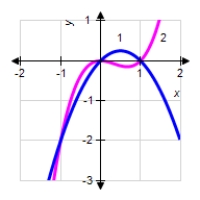 1)
1)  2)
2) 
A)
B)
C)
D)
E)
 1)
1)  2)
2) 
A)

B)

C)

D)

E)


Unlock Deck
Unlock for access to all 88 flashcards in this deck.
Unlock Deck
k this deck
42
Evaluate the definite integral of the algebraic function. 
Use a graphing utility to verify your results.Round your answer to 4 decimal places.
A) 4.2422
B) 5.4526
C) -4.2422
D) 1.0439
E) 0.7140

Use a graphing utility to verify your results.Round your answer to 4 decimal places.
A) 4.2422
B) 5.4526
C) -4.2422
D) 1.0439
E) 0.7140

Unlock Deck
Unlock for access to all 88 flashcards in this deck.
Unlock Deck
k this deck
43
Find the area of the region bounded by the graphs. 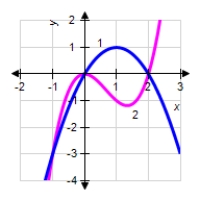 1)
1)  2)
2) 
A)
B)
C)
D)
E)
 1)
1)  2)
2) 
A)

B)

C)

D)

E)


Unlock Deck
Unlock for access to all 88 flashcards in this deck.
Unlock Deck
k this deck
44
Evaluate the definite integral of the algebraic function. 
Use a graphing utility to verify your results.
A) 825
B) 33
C) -33
D) 27
E) -825

Use a graphing utility to verify your results.
A) 825
B) 33
C) -33
D) 27
E) -825

Unlock Deck
Unlock for access to all 88 flashcards in this deck.
Unlock Deck
k this deck
45
The rate of depreciation of a building is given by  dollars per year,
dollars per year,  Use the definite integral to find the total depreciation over the first 10 years.
Use the definite integral to find the total depreciation over the first 10 years.
A) $260,000
B) $26,000
C) $130,000
D) $13,487
E) $520,000
 dollars per year,
dollars per year,  Use the definite integral to find the total depreciation over the first 10 years.
Use the definite integral to find the total depreciation over the first 10 years. A) $260,000
B) $26,000
C) $130,000
D) $13,487
E) $520,000

Unlock Deck
Unlock for access to all 88 flashcards in this deck.
Unlock Deck
k this deck
46
Find the average value of the function over the given interval.  on
on 
A)
B)
C)
D) 25
E)
 on
on 
A)

B)

C)

D) 25
E)


Unlock Deck
Unlock for access to all 88 flashcards in this deck.
Unlock Deck
k this deck
47
Find the area between the curve  and the x-axis from
and the x-axis from  to
to 
A)
B)
C)
D)
E)
 and the x-axis from
and the x-axis from  to
to 
A)

B)

C)

D)

E)


Unlock Deck
Unlock for access to all 88 flashcards in this deck.
Unlock Deck
k this deck
48
Find the equation of the function whose derivative is  and whose graph passes through the point
and whose graph passes through the point 
A)
B)
C)
D)
E)
 and whose graph passes through the point
and whose graph passes through the point 
A)

B)

C)

D)

E)


Unlock Deck
Unlock for access to all 88 flashcards in this deck.
Unlock Deck
k this deck
49
Use the values  and
and  to evaluate the definite integral
to evaluate the definite integral 
A) 79
B) -83
C) 0
D) 18
E) -74
 and
and  to evaluate the definite integral
to evaluate the definite integral 
A) 79
B) -83
C) 0
D) 18
E) -74

Unlock Deck
Unlock for access to all 88 flashcards in this deck.
Unlock Deck
k this deck
50
Sketch the region whose area is given by the definite integral and then use a geometric formula to evaluate the integral. 
A)
B)
C)
D)
E) none of the above

A)

B)

C)

D)

E) none of the above

Unlock Deck
Unlock for access to all 88 flashcards in this deck.
Unlock Deck
k this deck
51
Use any basic integration formula or formulas to find the indefinite integral 
A)
B)
C)
D) 
E)

A)

B)

C)

D)

E)


Unlock Deck
Unlock for access to all 88 flashcards in this deck.
Unlock Deck
k this deck
52
Determine the graph whose area (the shaded region)is represented by the integral. 
A) 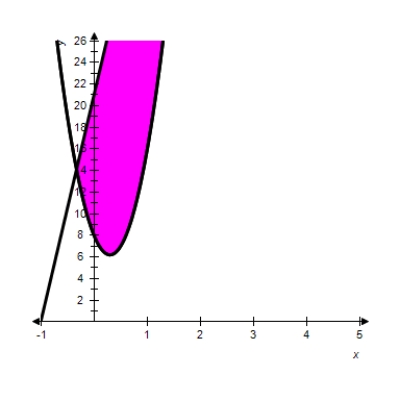
B) 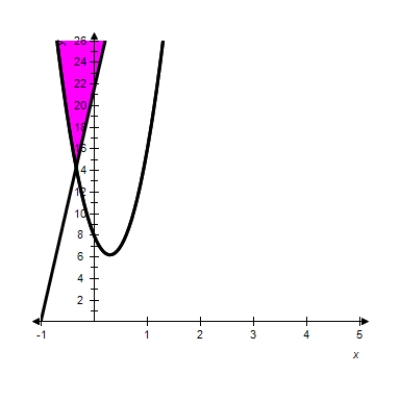
C) 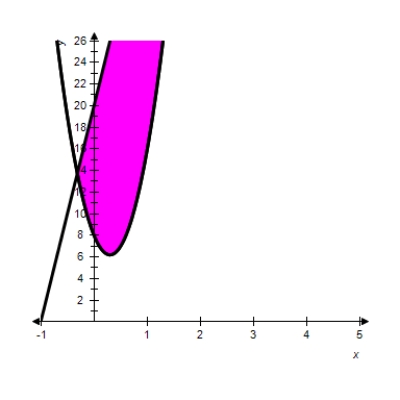
D) 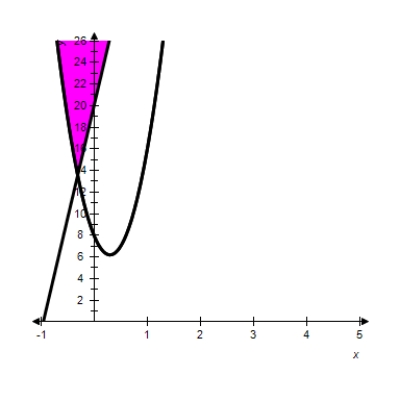
E) 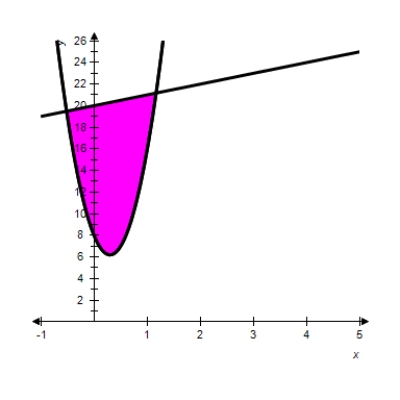

A)

B)

C)

D)

E)


Unlock Deck
Unlock for access to all 88 flashcards in this deck.
Unlock Deck
k this deck
53
Find the indefinite integral. 
A)
B)
C)
D)
E) none of the above

A)

B)

C)

D)

E) none of the above

Unlock Deck
Unlock for access to all 88 flashcards in this deck.
Unlock Deck
k this deck
54
Sketch the region whose area is given by the definite integral and then use a geometric formula to evaluate the integral. 
A) -20
B) 100
C) -100
D) 20
E) 7

A) -20
B) 100
C) -100
D) 20
E) 7

Unlock Deck
Unlock for access to all 88 flashcards in this deck.
Unlock Deck
k this deck
55
Find the indefinite integral. 
A)
B)
C)
D)
E)

A)

B)

C)

D)

E)


Unlock Deck
Unlock for access to all 88 flashcards in this deck.
Unlock Deck
k this deck
56
Find the average value of the function over the given interval.  on
on 
A) -31
B) -93
C) -30.2
D) -29.8
E) 42.6
 on
on 
A) -31
B) -93
C) -30.2
D) -29.8
E) 42.6

Unlock Deck
Unlock for access to all 88 flashcards in this deck.
Unlock Deck
k this deck
57
Find the indefinite integral. 
A)
B)
C)
D) integral does not exist
E) none of the above

A)

B)

C)

D) integral does not exist
E) none of the above

Unlock Deck
Unlock for access to all 88 flashcards in this deck.
Unlock Deck
k this deck
58
Evaluate the definite integral 
A)
B) 
C)
D)
E)

A)

B)

C)

D)

E)


Unlock Deck
Unlock for access to all 88 flashcards in this deck.
Unlock Deck
k this deck
59
Determine the area of the given region. 
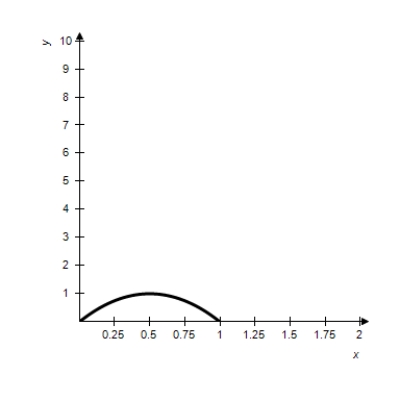
A)
B)
C)
D)
E) None of the above


A)

B)

C)

D)

E) None of the above

Unlock Deck
Unlock for access to all 88 flashcards in this deck.
Unlock Deck
k this deck
60
Evaluate the following definite integral. 
Use a graphing utility to check your answer.
A)
B)
C)
D)
E)

Use a graphing utility to check your answer.
A)

B)

C)

D)

E)


Unlock Deck
Unlock for access to all 88 flashcards in this deck.
Unlock Deck
k this deck
61
Use the Midpoint Rule with  to approximate the area of the region bounded by the graph of the function and the x-axis over the interval.Sketch the region.
to approximate the area of the region bounded by the graph of the function and the x-axis over the interval.Sketch the region. 
A) The approximate area is: ≈ 33.57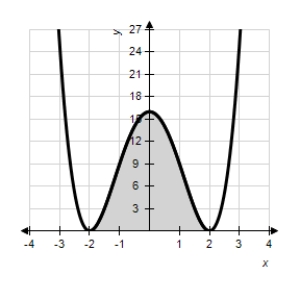
B) The approximate area is: ≈ 39.05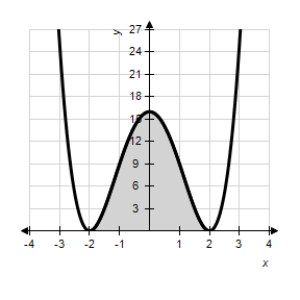
C) The approximate area is: ≈ 34.25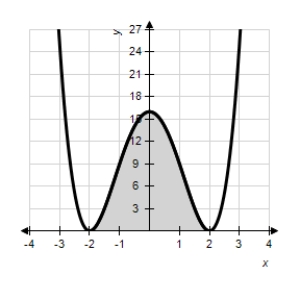
D) The approximate area is: ≈ 26.37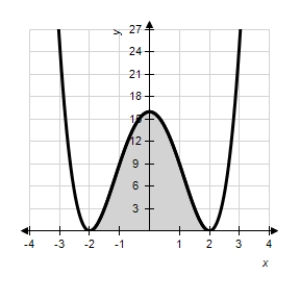
E) The approximate area is: ≈ 30.14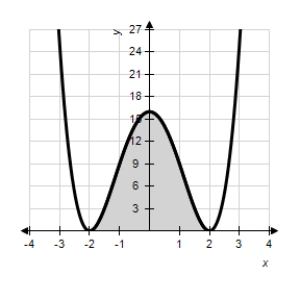
 to approximate the area of the region bounded by the graph of the function and the x-axis over the interval.Sketch the region.
to approximate the area of the region bounded by the graph of the function and the x-axis over the interval.Sketch the region. 
A) The approximate area is: ≈ 33.57

B) The approximate area is: ≈ 39.05

C) The approximate area is: ≈ 34.25

D) The approximate area is: ≈ 26.37

E) The approximate area is: ≈ 30.14


Unlock Deck
Unlock for access to all 88 flashcards in this deck.
Unlock Deck
k this deck
62
The integrand of the following definite integral is a difference of two functions. 
Sketch the graph of the two functions and shade the region whose area is represented by the integral.
A) 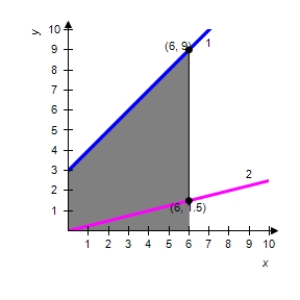
1)
2)
B) 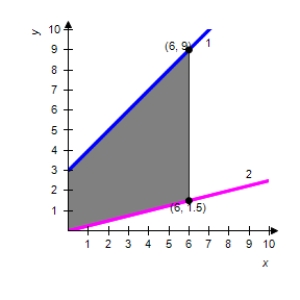
1)
2)
C) 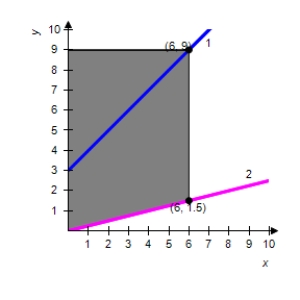
1)
2)
D) 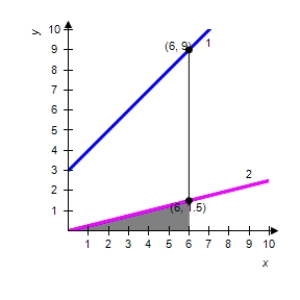
1)
2)
E) 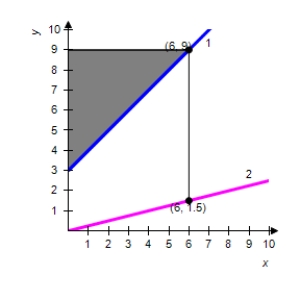
1)
2)

Sketch the graph of the two functions and shade the region whose area is represented by the integral.
A)

1)

2)

B)

1)

2)

C)

1)

2)

D)

1)

2)

E)

1)

2)


Unlock Deck
Unlock for access to all 88 flashcards in this deck.
Unlock Deck
k this deck
63
Use the Midpoint Rule with n = 4 to approximate the area of the region bounded by the graph of  and the x-axis over the interval
and the x-axis over the interval  Round your answer to 4 decimal places.
Round your answer to 4 decimal places.
A) 2.8958
B) 3.1244
C) 4.0389
D) 3.9246
E) 3.8103
 and the x-axis over the interval
and the x-axis over the interval  Round your answer to 4 decimal places.
Round your answer to 4 decimal places. A) 2.8958
B) 3.1244
C) 4.0389
D) 3.9246
E) 3.8103

Unlock Deck
Unlock for access to all 88 flashcards in this deck.
Unlock Deck
k this deck
64
Set up the definite integral that gives the area of the region bounded by the graphs. 

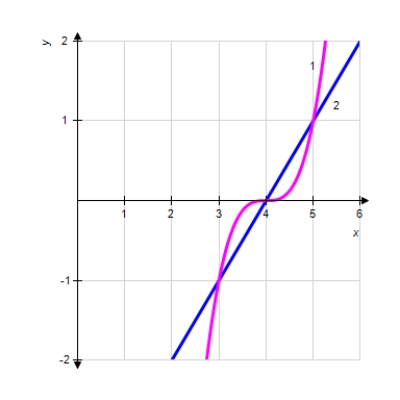
A)
B)
C)
D)
E)



A)

B)

C)

D)

E)


Unlock Deck
Unlock for access to all 88 flashcards in this deck.
Unlock Deck
k this deck
65
The integrand of the following definite integral is a difference of two functions. 
Sketch the graph of the two functions and shade the region whose area is represented by the integral.
A) 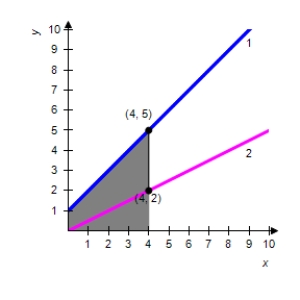
1)
2)
B) 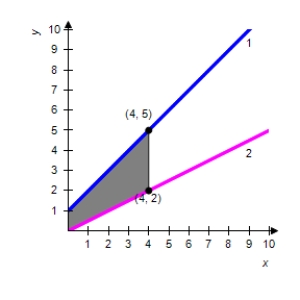
1)
2)
C) 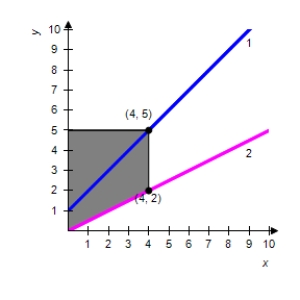
1)
2)
D) 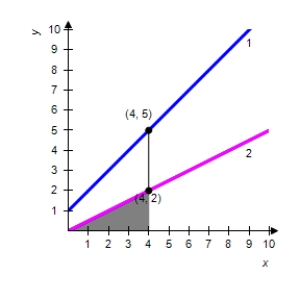
1)
2)
E) 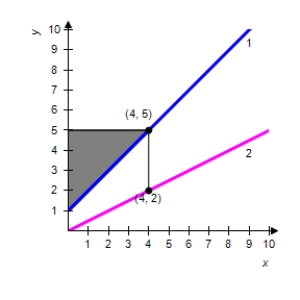
1)
2)

Sketch the graph of the two functions and shade the region whose area is represented by the integral.
A)

1)

2)

B)

1)

2)

C)

1)

2)

D)

1)

2)

E)

1)

2)


Unlock Deck
Unlock for access to all 88 flashcards in this deck.
Unlock Deck
k this deck
66
Set up the definite integral that gives the area of the region bounded by the graphs. 

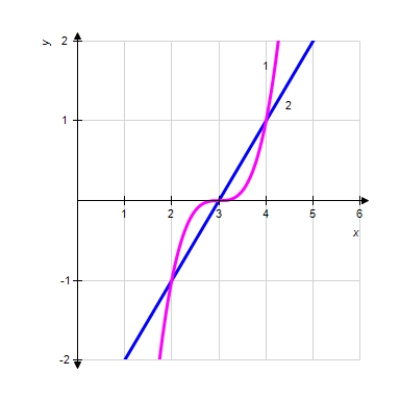
A)
B)
C)
D)
E)



A)

B)

C)

D)

E)


Unlock Deck
Unlock for access to all 88 flashcards in this deck.
Unlock Deck
k this deck
67
The revenue from a manufacturing process (in millions of dollars per year)is projected to follow the model  for 10 years.Over the same period of time,the cost (in millions of dollars per year)is projected to follow the model
for 10 years.Over the same period of time,the cost (in millions of dollars per year)is projected to follow the model  ,where t is the time (in years).Approximate the profit over the 10-year period,beginning with t = 0.Round your answer to two decimal places.
,where t is the time (in years).Approximate the profit over the 10-year period,beginning with t = 0.Round your answer to two decimal places.
A) $3,236.83 million
B) $3,293.50 million
C) $3,203.50 million
D) $3,235.67 million
E) $3,295.67 million
 for 10 years.Over the same period of time,the cost (in millions of dollars per year)is projected to follow the model
for 10 years.Over the same period of time,the cost (in millions of dollars per year)is projected to follow the model  ,where t is the time (in years).Approximate the profit over the 10-year period,beginning with t = 0.Round your answer to two decimal places.
,where t is the time (in years).Approximate the profit over the 10-year period,beginning with t = 0.Round your answer to two decimal places. A) $3,236.83 million
B) $3,293.50 million
C) $3,203.50 million
D) $3,235.67 million
E) $3,295.67 million

Unlock Deck
Unlock for access to all 88 flashcards in this deck.
Unlock Deck
k this deck
68
Set up the definite integral that gives the area of the region bounded by the graphs. 

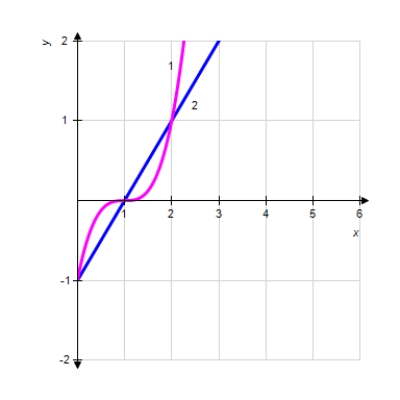
A)
B)
C)
D)
E)



A)

B)

C)

D)

E)


Unlock Deck
Unlock for access to all 88 flashcards in this deck.
Unlock Deck
k this deck
69
Find the area of the region bounded by the graphs. 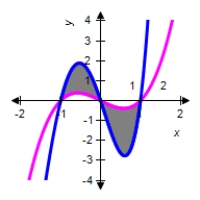
1) 2)
2) 
A)
B)
C)
D)
E)

1)
 2)
2) 
A)

B)

C)

D)

E)


Unlock Deck
Unlock for access to all 88 flashcards in this deck.
Unlock Deck
k this deck
70
The demand function for a product is  ,where p is the number of dollars and x is the number of units.If the equilibrium price is $20,what is the consumer's surplus?
,where p is the number of dollars and x is the number of units.If the equilibrium price is $20,what is the consumer's surplus?
A) $1,130
B) $400
C) $1,190
D) $745
E) $485
 ,where p is the number of dollars and x is the number of units.If the equilibrium price is $20,what is the consumer's surplus?
,where p is the number of dollars and x is the number of units.If the equilibrium price is $20,what is the consumer's surplus? A) $1,130
B) $400
C) $1,190
D) $745
E) $485

Unlock Deck
Unlock for access to all 88 flashcards in this deck.
Unlock Deck
k this deck
71
Use the Midpoint Rule with n = 4 to approximate the area of the following region. 
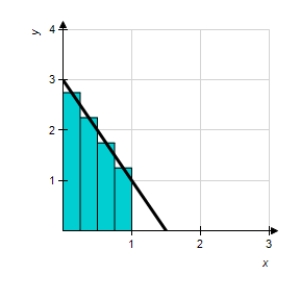
A) 3
B) 8
C) 2
D) 1
E) 6


A) 3
B) 8
C) 2
D) 1
E) 6

Unlock Deck
Unlock for access to all 88 flashcards in this deck.
Unlock Deck
k this deck
72
Use the Midpoint Rule with n = 4 to approximate the area of the following region.Round your answer to 3 decimal places. 
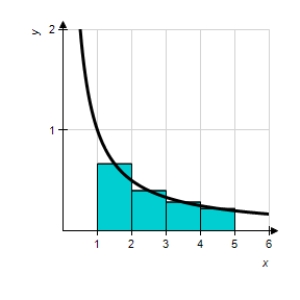
A) 1.156
B) 1.324
C) 1.575
D) 1.275
E) 1.876


A) 1.156
B) 1.324
C) 1.575
D) 1.275
E) 1.876

Unlock Deck
Unlock for access to all 88 flashcards in this deck.
Unlock Deck
k this deck
73
Use the Midpoint Rule with n = 4 to approximate the area of the region bounded by the graph of  and the x-axis over the interval
and the x-axis over the interval  Round your answer to 4 decimal places.
Round your answer to 4 decimal places.
A) 7.3013
B) 6.0475
C) 6.4900
D) 7.3750
E) 7.8913
 and the x-axis over the interval
and the x-axis over the interval  Round your answer to 4 decimal places.
Round your answer to 4 decimal places. A) 7.3013
B) 6.0475
C) 6.4900
D) 7.3750
E) 7.8913

Unlock Deck
Unlock for access to all 88 flashcards in this deck.
Unlock Deck
k this deck
74
Find the area of the region bounded by the graphs of the algebraic functions. 

A)
B)
C)
D)
E)


A)

B)

C)

D)

E)


Unlock Deck
Unlock for access to all 88 flashcards in this deck.
Unlock Deck
k this deck
75
Find the area of the region bounded by the graphs. 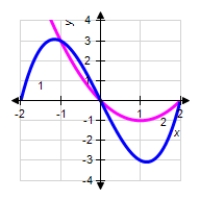 1)
1)  2)
2) 
A)
B)
C)
D)
E)
 1)
1)  2)
2) 
A)

B)

C)

D)

E)


Unlock Deck
Unlock for access to all 88 flashcards in this deck.
Unlock Deck
k this deck
76
Use the Midpoint Rule with n = 4 to approximate the area of the following region.Round your answer to 3 decimal places. 
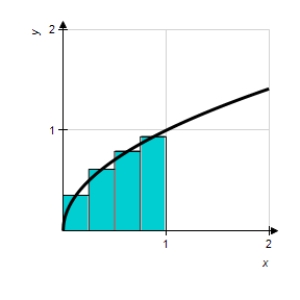
A) 0.556
B) 0.436
C) 0.673
D) 0.268
E) 0.883


A) 0.556
B) 0.436
C) 0.673
D) 0.268
E) 0.883

Unlock Deck
Unlock for access to all 88 flashcards in this deck.
Unlock Deck
k this deck
77
Set up the definite integral that gives the area of the region bounded by the graphs. 

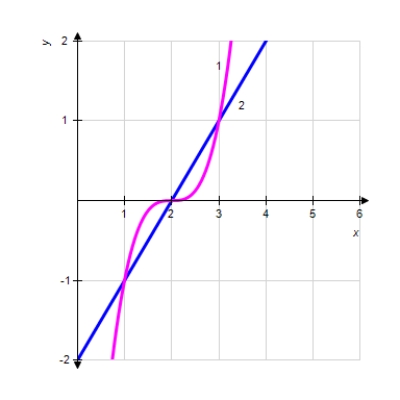
A)
B)
C)
D)
E)



A)

B)

C)

D)

E)


Unlock Deck
Unlock for access to all 88 flashcards in this deck.
Unlock Deck
k this deck
78
Two models,  and
and  ,are given for revenue (in billions of dollars per year)for a large corporation.Both models are estimates of revenues for 2007 through 2011,with t = 7 corresponding to 2007.Which model is projecting the greater revenue? How much more total revenue does that model project over the five-year period?
,are given for revenue (in billions of dollars per year)for a large corporation.Both models are estimates of revenues for 2007 through 2011,with t = 7 corresponding to 2007.Which model is projecting the greater revenue? How much more total revenue does that model project over the five-year period?
A) The model projects greater revenue than
projects greater revenue than  $16.56 billion
$16.56 billion
B) The model projects greater revenue than
projects greater revenue than  $14.40 billion
$14.40 billion
C) The model projects greater revenue than
projects greater revenue than  $18.00 billion
$18.00 billion
D) The model projects greater revenue than
projects greater revenue than  $17.10 billion
$17.10 billion
E) The model projects greater revenue than
projects greater revenue than  $16.74 billion
$16.74 billion
 and
and  ,are given for revenue (in billions of dollars per year)for a large corporation.Both models are estimates of revenues for 2007 through 2011,with t = 7 corresponding to 2007.Which model is projecting the greater revenue? How much more total revenue does that model project over the five-year period?
,are given for revenue (in billions of dollars per year)for a large corporation.Both models are estimates of revenues for 2007 through 2011,with t = 7 corresponding to 2007.Which model is projecting the greater revenue? How much more total revenue does that model project over the five-year period? A) The model
 projects greater revenue than
projects greater revenue than  $16.56 billion
$16.56 billionB) The model
 projects greater revenue than
projects greater revenue than  $14.40 billion
$14.40 billionC) The model
 projects greater revenue than
projects greater revenue than  $18.00 billion
$18.00 billionD) The model
 projects greater revenue than
projects greater revenue than  $17.10 billion
$17.10 billionE) The model
 projects greater revenue than
projects greater revenue than  $16.74 billion
$16.74 billion
Unlock Deck
Unlock for access to all 88 flashcards in this deck.
Unlock Deck
k this deck
79
Find the area of the region bounded by the graphs of the algebraic functions.


A)
B)
C)
D)
E)


A)

B)

C)

D)

E)


Unlock Deck
Unlock for access to all 88 flashcards in this deck.
Unlock Deck
k this deck
80
The integrand of the following definite integral is a difference of two functions. 
Sketch the graph of the two functions and shade the region whose area is represented by the integral.
A) 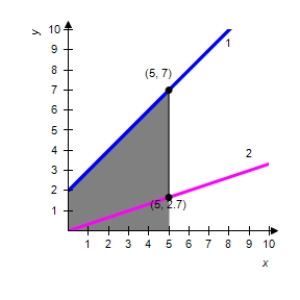
1)
2)
B) 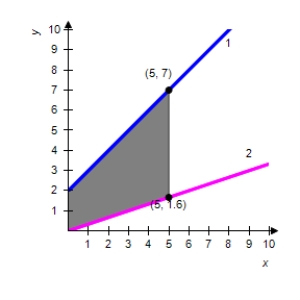
1)
2)
C) 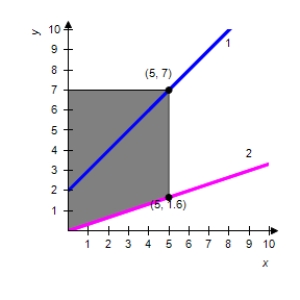
1)
2)
D) 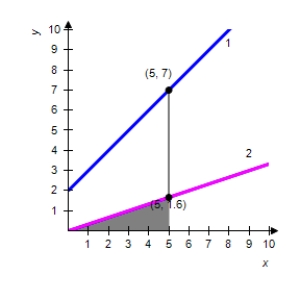
1)
2)
E) 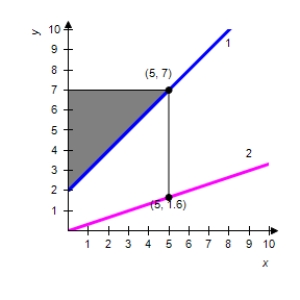
1)
2)

Sketch the graph of the two functions and shade the region whose area is represented by the integral.
A)

1)

2)

B)

1)

2)

C)

1)

2)

D)

1)

2)

E)

1)

2)


Unlock Deck
Unlock for access to all 88 flashcards in this deck.
Unlock Deck
k this deck


